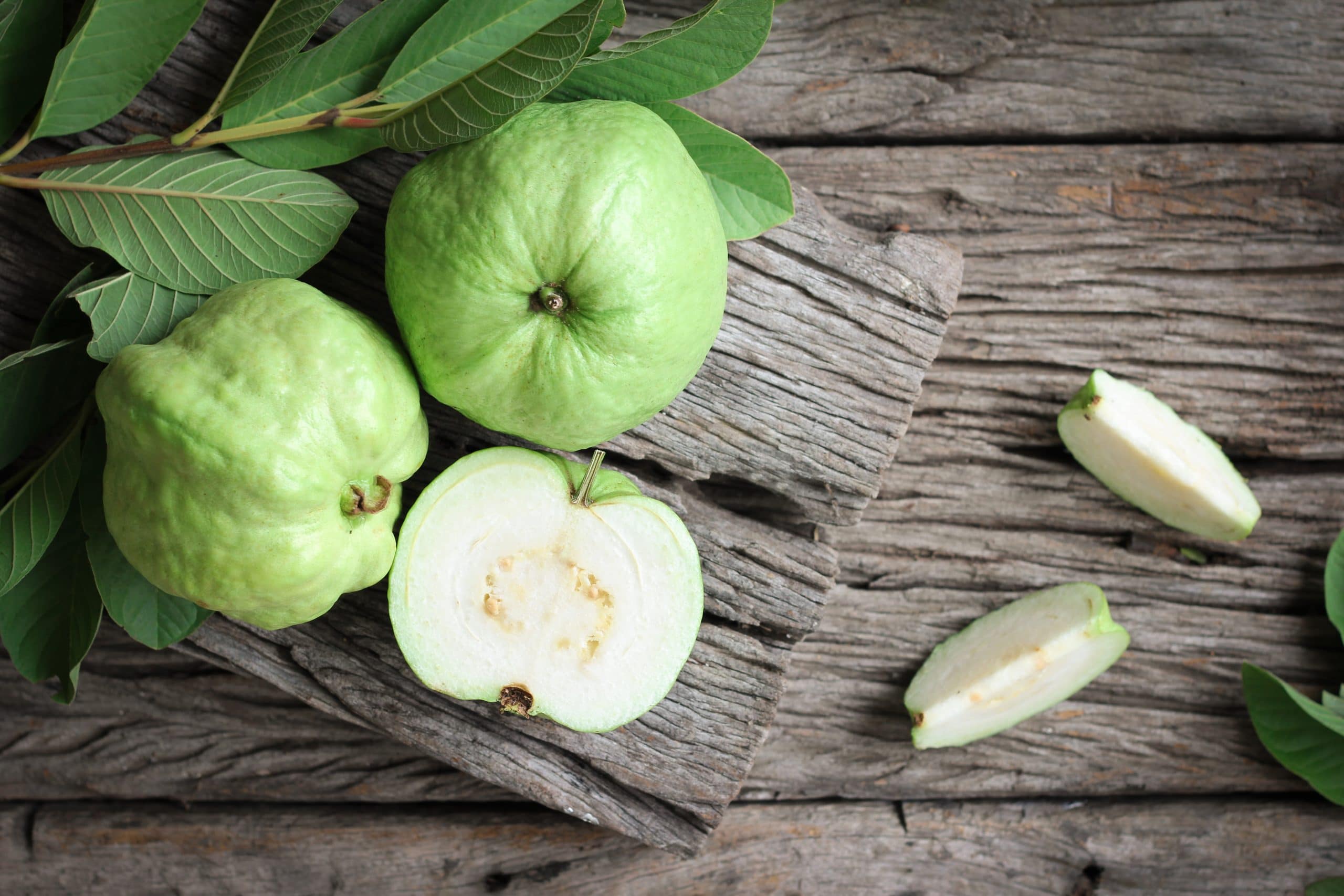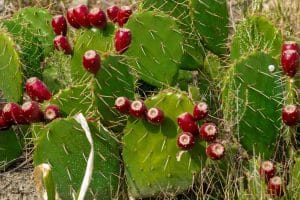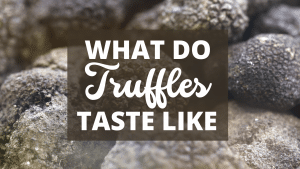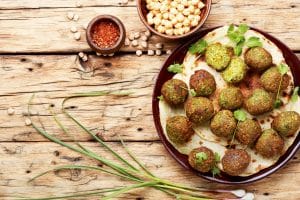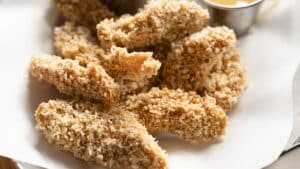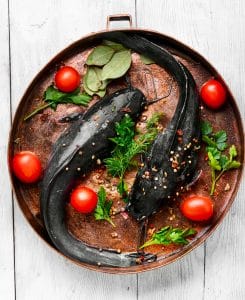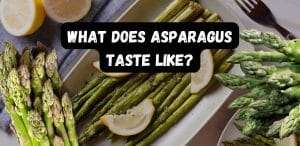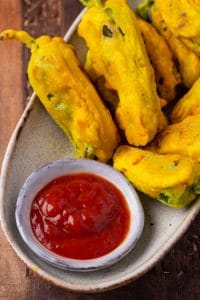What Does Guava Taste Like?
Important Note: When you buy through our links, we may earn a commission. As an Amazon Associate we earn from qualifying purchases. Content, pricing, offers and availability are subject to change at any time - more info.
There is no middle ground with guavas — you either love them or hate them. After one taste of the deliciously tangy tropical wonder, many people will actively avoid trying guava again. Whether it’s the taste or the texture of this unique fruit that frightens these timid foodies off, no one will ever know. What is for sure is that there are enough people who love everything about guavas that they will continue to be popular fruit wherever they are available.
Guava has a distinctively sweet, tangy taste. It is almost citrusy, especially in the firm layer of dense flesh below the peel. Unlike citrus, it is firm and dense in texture. The thick outer layer surrounding a sweet juicy center of hard edible seeds has a grainy texture similar to pears.
If you are deciding if you should try some fresh guava, don’t hesitate. It may have an unusual exotic appearance, but this fruit’s sweet and tangy freshness is invigorating. The only caution is that guavas are quite picky about exactly when they are consumed. Too early or too late can dramatically alter your guava tasting experience.
- What Does Guava Taste Like?
- Why Is Fresh Guava So Scarce?
- Can You Train Yourself To Like The Taste Of Guava?
- Can I Eat Guava Seeds?
- Should Guava Be Peeled?
- What Are The Health Benefits Of Guavas?
- So, What Does Guava Taste Like?
What Does Guava Taste Like?
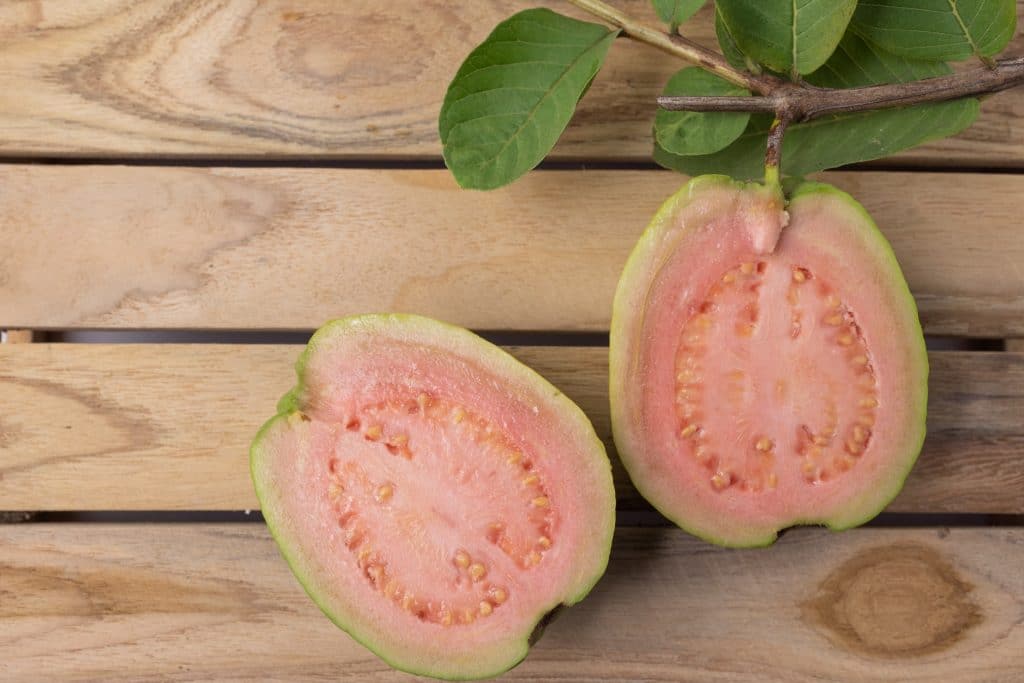
The health benefits of guavas make them well worth adding to your grocery list. These balls of pink goodness are packed with vitamin C, potassium, fiber, and antioxidants. If you are apprehensive about the taste, you will be in for a happy surprise.
The thing about eating fresh guavas is that you need to eat them immediately when they ripen. If they are slightly green, they are hard and acidic tasting. They become mushy and get a really strong, musty kind of old wardrobe smell that fills the air if they are overripe. You can usually smell overripe guava long before you see it!
The taste of overripe guava is not pleasant. The fruit has begun to ferment and has a biting, stale taste. One can also be put off by how quickly it loses its firmness. The texture rapidly changes from firm graininess to grainy mushiness. If the weather is warm, overripe guavas are also a magnet for fruit flies if they are left out.
The taste of guava is dramatically different if you try it fresh or as canned fruit, jelly, or juice. All of these will have the essential guava-ry base taste and possibly the dense, grainy texture distinctive of guavas. Additives like sweeteners in processed items can alter the taste considerably. If you have only ever tried guava juice and didn’t like it, don’t be put off trying a slice of fresh guava if you have the opportunity.
If you are tasting guava for the first time, I don’t recommend that you simply bite into it as you would an apple. The tangy taste sometimes feels a bit sharp all at once in a big mouthful, and the hard edible seeds can come as a bit of a surprise if you aren’t used to them. The sweet and delicious taste should also be savored and appreciated one glorious bite at a time.
Give yourself time to become hooked to the fresh fruity taste of warm sunshine by slicing fresh guava into wedges or slices. The thin skin is perfectly edible, so as long as you have washed your fruit, the entire guava can be sliced up and enjoyed.
The first nibble may taste particularly zesty, but after your tastebuds have acclimatized to the tropics, the rest of the fruit will taste juicy and delicious!
A lot of the taste of fresh guavas can also be attributed to the fruit’s strong smell. Unlike apples, pears, or oranges, guavas make their presence felt with their powerful scent. For anyone who grew up in a region where guavas are plentiful, the smell is an irresistible, familiar, comforting smell. In cooler climates, the smell of ripe guavas can be sweet and exotic.
Our senses of taste and smell are closely linked. While we identify a taste with the taste buds on our tongue, the nerves in our nose simultaneously identifies the smell. The information is sent to our brain, and both signals are integrated to form a ‘taste’. While we can identify some basic tastes like salt or sour without the sense of smell, the complex taste of guava with its delicious fruity aroma is a feast for the senses.
Why Is Fresh Guava So Scarce?
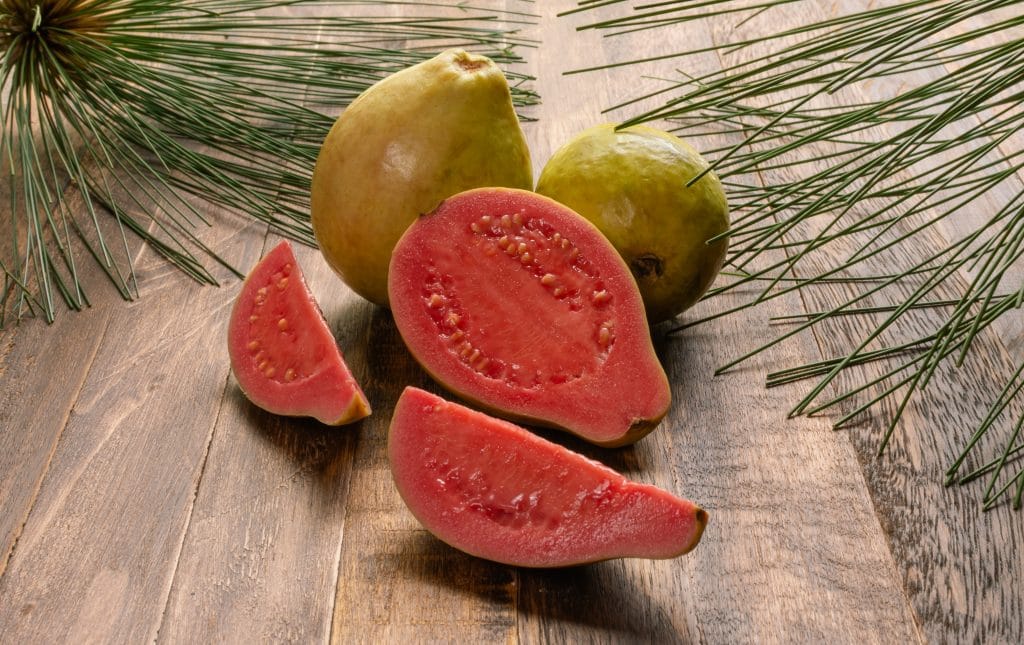
Guavas have an incredibly short shelf life which is why you don’t often see them stacked up in stores alongside apples and pears, especially in the northern states. Once the fruit has been harvested, it begins to ripen at an increased rate.
If guavas are not refrigerated, they can become overripe within a week. They can last up to fifteen days in cold storage. This short time frame makes this incredibly nutritious and abundant fruit difficult to distribute to distant regions before it spoils. It is a challenging scenario for growers. If you have purchased fresh guava, keep them cool and try to eat them as soon as possible before they get overripe.
Can You Train Yourself To Like The Taste Of Guava?
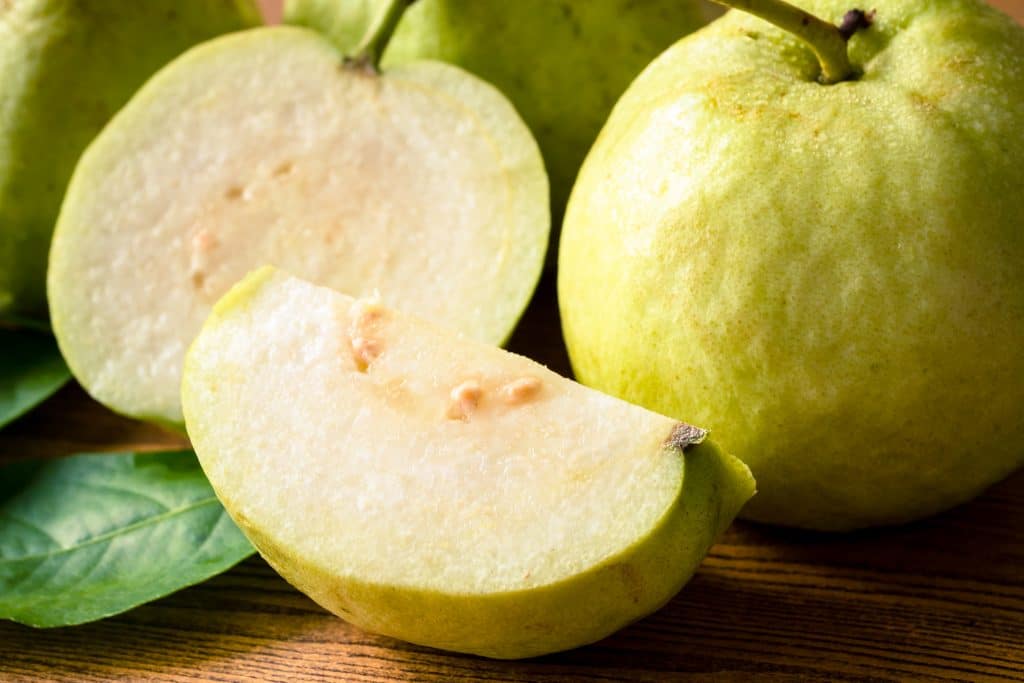
If you are struggling to get used to the taste of guava, but you’ve seen the health benefits of this wonder-fruit, try holding your nose closed while you’re eating it, to begin with. Guava contains three times the amount of vitamin c as citrus, so it’s worth trying to get used to its unique flavor. Once you do, you will absolutely relish it.
According to BBC Food, you can train yourself to accept the flavor of any new food. Through continued exposure, new tastes become accepted. It isn’t easy to keep on purchasing and consuming something you don’t like, but it is worth staying on track with guava. You will soon wonder how you didn’t love it from the start.
Try this simple trick if you are trying to get used to the aromatic, tart guava taste and its slightly gritty texture. Instead of cutting it into wedges or biting into it directly, slice it into wafer-thin slices. Then go and find something that you love doing and find interesting. Watch a movie or read a book or sit out in the garden while you eat your exotic guava fruit.
Before you put a whole piece of guava into your mouth and overwhelm yourself, lick the taste off a thin slice. That first taste is almost like the tang you feel when you pop a sour gummy into your mouth. But after your taste buds are familiar with the new sensation, you will find yourself happily munching the slices you have cut, and you will soon be looking about for more.
Can I Eat Guava Seeds?
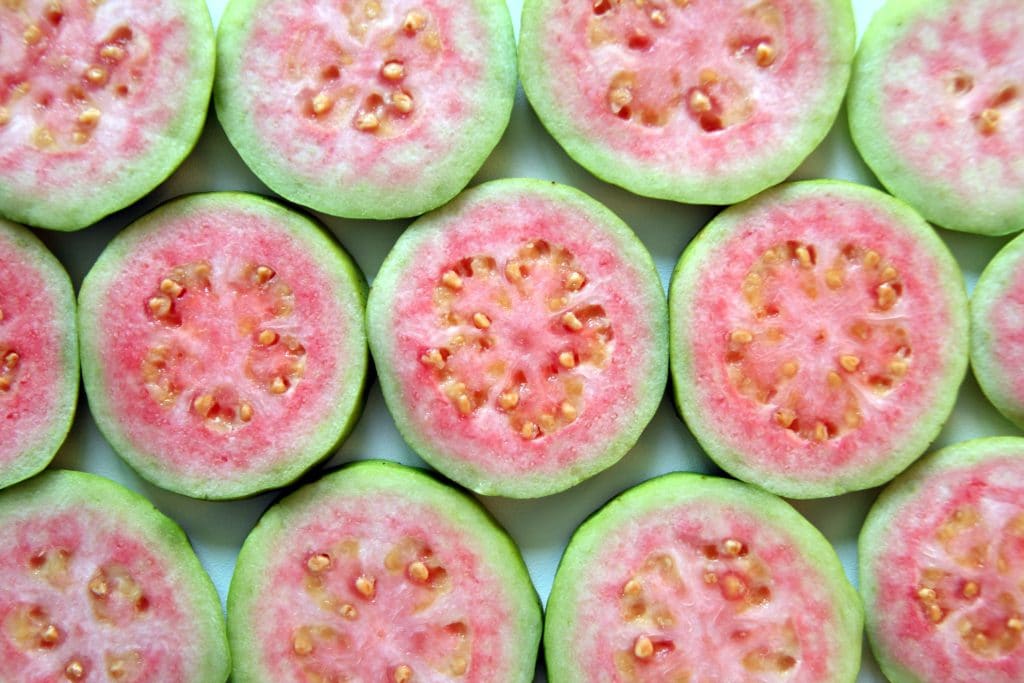
Whether the type of guava you have has got pink flesh or white flesh, one of the things that makes it a guava is that it will contain a ball of hard seeds in the middle. These can be quite difficult to get used to at first because the sensation is quite different from most other fruits, where seeds are removed before they are consumed.
The entire guava fruit can be consumed — peel, flesh, and seeds. If the seeds in the center are too much for you at first, scoop them out the meat in the middle that contains seeds and add it to a smoothie. The result will be healthy and delicious. The guava seeds will add a lovely texture.
Should Guava Be Peeled?
Guavas have a soft, thin outer peel that can easily be removed with a peeler or a paring knife. However, so long as the fruit has been properly washed before it is consumed, the peel can be enjoyed as part of the guava-taste experience.
The outside peel of a guava is, in fact, extremely healthy. For anyone who has type-2 diabetes or cardiovascular disease, guava peel can be beneficial. So before you peel your guava, maybe try it with the peel on. Alternatively, pop the peel into a blender with papaya, mango, banana, or strawberries and make yourself a tropical smoothie that packs a vitamin punch.
What Are The Health Benefits Of Guavas?
Guava is regarded as a superfood because so many health benefits are packed into this one delicious fruit. Adding guava will not only add some flair to your usual apples and oranges routine fruit list but will give your body a giant serving of health benefits too. Here are eight of the benefits of adding guava to your diet.
Cancer Fighting Agent
Guava contains high amounts of antioxidants. These substances prevent the growth and development of cancer cells. While guava is by no means recommended as a treatment for cancer, eating them has been shown to have some beneficial effects.
Beneficial For Diabetics
Some studies have shown that guava improves blood sugar control—the low glycemic index of guava assists in preventing blood sugar levels from rising to unacceptably high levels.
Weight-Loss Agent
Guava contains the perfect balance of high fiber and low calories to make you feel full and boost your metabolism. And although it is low in calories, it is packed with nutrients and contains less sugar than many other fruits like pears or apples. So if you are trying to lose weight, this superfood may be just what you need.
Digestive Aid
Guavas contain a high amount of dietary fiber. If you tend to become a little blocked up occasionally, adding guavas to your diet is a tasty and natural way to boost your daily intake of fiber. This will stimulate the bowel to move more regularly, thereby preventing constipation.
In addition, studies have shown that guavas can also aid in decreasing the intensity and duration of diarrhea. This is because guava has antimicrobial properties that can neutralize the microbes that cause diarrhea.
Superfood During Pregnancy
Guava is rich in folic acid and vitamin B9, which are essential elements to ensure a baby’s healthy development. If you weren’t a fan of guava before you were pregnant, maybe it’s time to give it another try. You may even develop a guava-craving!
Good Heart Health
Consuming guavas may not only help to regulate your blood pressure, but the high level of antioxidants can also protect your heart from damage caused by free radicals. Eating guavas regularly before meals has also been linked to a decrease in blood pressure. This can therefore reduce the risk of heart attack or stroke.
Immune Booster
Oranges, grapefruit, and lemons are the usual go-to when it comes to boosting our vitamin c levels. Most varieties of guavas contain 2-5 times more vitamin c than citrus. Vitamin C is well-known for its ability to reduce the duration of the common cold. Guava is a powerful immune booster that can help to shield against common infections.
For Younger Looking Skin
We can’t slow time down, and we are all getting older with each passing day, but adding guavas to your diet may help slow down the signs of aging on your skin. Guavas contain antioxidants that can protect your skin from damage, prevent premature wrinkles and keep you looking younger for longer.
So, What Does Guava Taste Like?
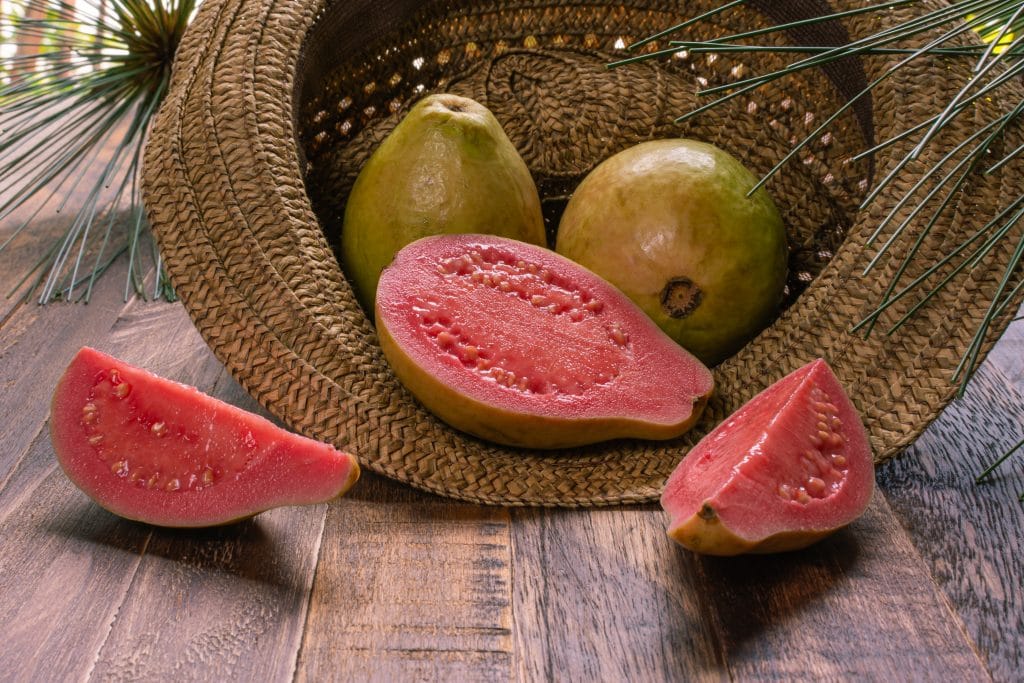
Guavas are uniquely flavored tropical fruits. The taste is a combination of tangy citrus mixed with the mellow sweetness of a pear. One of the most important things about eating fresh guava is to ensure that the fruit is ripe but not overripe. Guavas ripen quickly after they are picked and, unless they are refrigerated, they will be inedible within one week. Guavas are packed with nutrients that will support good health, and adding guava to your grocery list is a decision you won’t regret.
